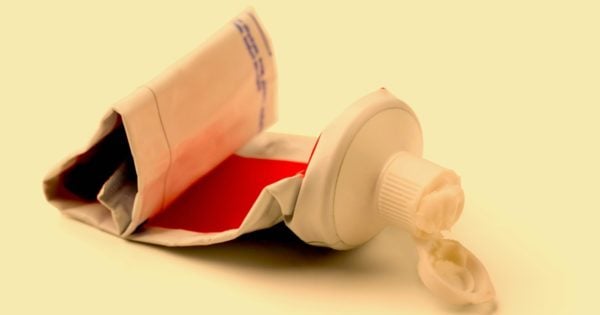
A doctor has warned against using do-it-yourself toothpaste pregnancy tests.
The trend has gathered traction online with over a million views on some how-to videos on YouTube.
One video instructs viewers to prepare urine in a cup, add toothpaste to a bowl and then “pour some drops of the urine into the toothpaste”.
The video claims you are “positively pregnant” if the toothpaste changes to look blue(ish) and foamy after stirring.

Fertility Specialist and Gynaecologist, Dr Sonya Jessup, says it's not at all a reliable method.
"In my experience, even over the counter 'wee on a stick' pregnancy tests can give dubious and false results," she told Mamamia.
"The amount of false hope or despair this less than accurate test could cause is not worth the risk in my opinion."


Top Comments
This just reminds me of Alice from The Vicar Of Dibley, who said she couldn't be pregnant because she peed on the rabbit, and it didn't turn blue!